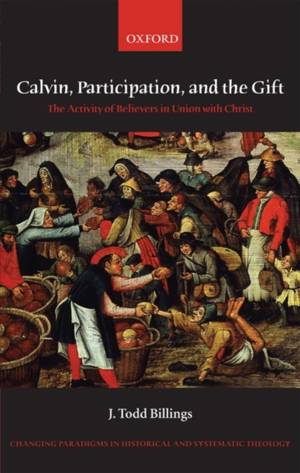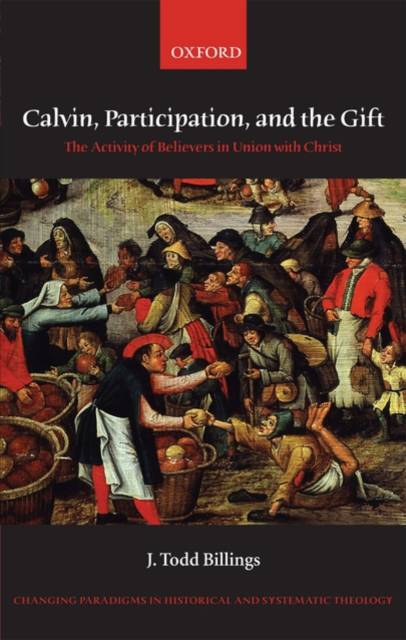
Door een staking bij bpost kan je online bestelling op dit moment iets langer onderweg zijn dan voorzien. Dringend iets nodig? Onze winkels ontvangen jou met open armen!
- Afhalen na 1 uur in een winkel met voorraad
- Gratis thuislevering in België vanaf € 30
- Ruim aanbod met 7 miljoen producten
Door een staking bij bpost kan je online bestelling op dit moment iets langer onderweg zijn dan voorzien. Dringend iets nodig? Onze winkels ontvangen jou met open armen!
- Afhalen na 1 uur in een winkel met voorraad
- Gratis thuislevering in België vanaf € 30
- Ruim aanbod met 7 miljoen producten
Zoeken
€ 290,45
+ 580 punten
Omschrijving
Is the God of Calvin a fountain of blessing, or a forceful tyrant? Is Calvin's view of God coercive, leaving no place for the human qua human in redemption? These are perennial questions about Calvin's theology which have been given new life by Gift theologians such as John Milbank, Graham Ward, and Stephen Webb. J. Todd Billings addresses these questions by exploring Calvin's theology of "participation in Christ." He argues that Calvin's theology of "participation" gives a positive place to the human, such that grace fulfills rather than destroys nature, affirming a differentiated union of God and humanity in creation and redemption. Calvin's trinitarian theology extends to his view of prayer, sacraments, the law, and the ecclesial and civil orders. In light of Calvin's doctrine of participation, Billings reframes the critiques of Calvin in the Gift discussion and opens up new possibilities for contemporary theology, ecumenical theology, and Calvin scholarship as well.
Specificaties
Betrokkenen
- Auteur(s):
- Uitgeverij:
Inhoud
- Aantal bladzijden:
- 232
- Taal:
- Engels
- Reeks:
Eigenschappen
- Productcode (EAN):
- 9780199211876
- Verschijningsdatum:
- 9/02/2008
- Uitvoering:
- Hardcover
- Formaat:
- Ongenaaid / garenloos gebonden
- Afmetingen:
- 145 mm x 216 mm
- Gewicht:
- 430 g

Alleen bij Standaard Boekhandel
+ 580 punten op je klantenkaart van Standaard Boekhandel
Beoordelingen
We publiceren alleen reviews die voldoen aan de voorwaarden voor reviews. Bekijk onze voorwaarden voor reviews.











